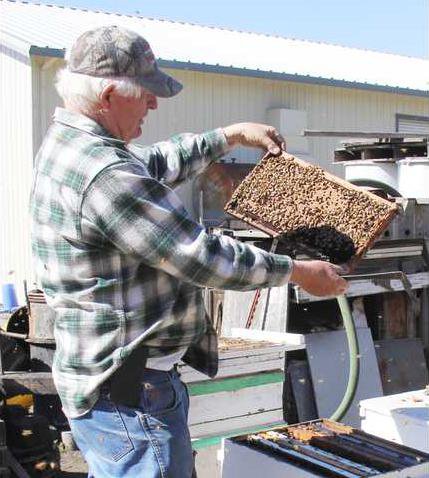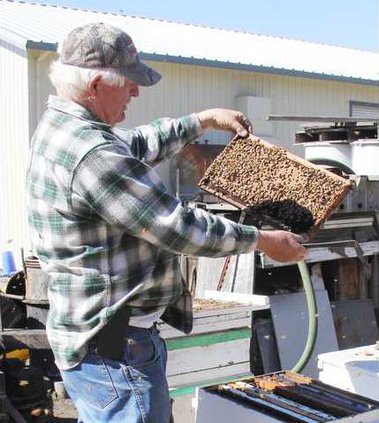In the heart of the state that dominates the global production of almonds, the Central Valley is known to welcome an influx of honeybee colonies just in time for almond orchard bloom each year.
Although these bees can truly qualify as “busy bees” during pollination season, bees often face a shortage of food both prior and after the almond orchard bloom, since their food consists of nectar and pollen accumulated from blooming plants.
That’s where Bayer CropScience comes in with its $100,000 donation to Central Valley honeybees through Project Apis m.
A nonprofit organization that dedicates itself to enhancing the health of honey bees, Project Apis m. will use this significant donation from Bayer CropScience to supply seed mixes to participating growers in California and Washington.
From these seed mixes, growers will be able to grow cover crops adjacent to almond acreage that will provide food sources for bees outside of almond orchard bloom.
“With funding from Bayer, Project Apis m. will be able to work with growers to plant more acres of honey bee habitat right where it can be accessed by honey bees before the almond crop’s first bloom,” said Christi Heintz, executive director of Project Apis m. and liaison to the Almond Board of California’s Bee Task Force.
With these seed mixes, the partnership hopes to create stronger and healthier bees to benefit crop pollination both locally and nationwide as bee colonies are transported to a number of other states for their corresponding growing seasons.
“This initiative is a direct response to the lack of adequate forage needed to keep honey bees healthy and thriving,” said Jim Blome, president and CEO of Bayer CropScience LP North America. “In 2015, Bayer CropScience is committed to research and partnerships that will make a positive impact on honey bees.”
Despite Bayer CropScience’s significant gesture towards bee health, local beekeepers addressed the donation with mixed emotions.
“Donations to beekeepers are always nice—nobody would not like an extra chunk of money,” said Max Tsymbal of Golden Comb. “However, farmers who have been spraying pesticides from Bayer CropScience up in the Firebaugh area into this year have caused the loss of 400 hives through crop dusting.”
As one of the world’s leading crop protection companies, Bayer CropScience manufactures neonicotinoid insecticides, which present a potential toxicity to honey bees.
These pesticides have been argued to hinder bees’ neurological functions, impairing their ability to forage for nectar, learn and remember where flowers are located, and possibly recall the location of their nest or hive.
“I think it’s a wonderful gesture. Bayer and numerous other chemical companies are trying to work with the bee industry,” said Orin Johnson of Johnson Apiaries, “but they still make a pesticide that can be harmful to bees whether it’s the actual product or the way it is applied.”





